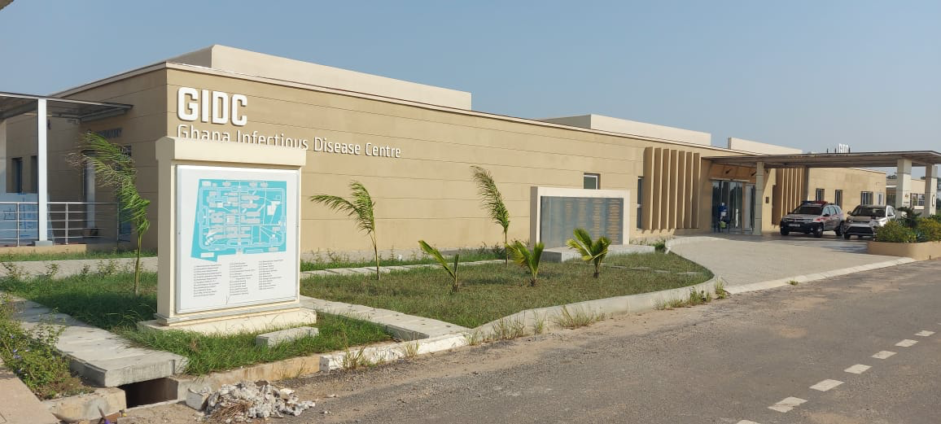In recent years, the world has witnessed outbreaks of deadly diseases such as Ebola, Zika, and COVID-19.
These epidemics have highlighted the importance of having well-prepared public health emergency systems in place. However, many developing countries, including Ghana, lack adequate resources to respond effectively to health emergencies.
Establishing a public health emergency fund in Ghana is vital to support epidemic preparedness, response, and prevention initiatives.
One of the primary reasons Ghana must prioritize setting up a health emergency fund is to manage disease outbreaks effectively.
In recent years, Ghana has experienced outbreaks of diseases such as cholera, meningitis, and yellow fever. These outbreaks have led to the loss of lives and economic disruption.
The lack of adequate funding to respond effectively to these outbreaks has worsened the situation.
A public health emergency fund will provide Ghana with the resources necessary to respond promptly and effectively to disease outbreaks. The resources will enable the government to establish and maintain effective disease surveillance systems, which are essential for early detection and swift responses.
In addition to managing disease outbreaks, a public health emergency fund will support the development of a robust and comprehensive public health infrastructure. The infrastructure will provide the necessary resources to address various environmental and public health concerns that increase the risk of disease outbreaks.
A well-funded public health emergency system will enable Ghana to prevent epidemic outbreaks through vaccination campaigns, public health campaigns, and community health education programs.
Prevention is more cost-effective than controlling an outbreak. Thus, the establishment of a public health emergency fund will help to minimize the economic cost of disease outbreaks.
Another significant benefit of establishing a public health emergency fund is to improve international collaborations. Ghana's ability to respond adequately to health emergencies would enhance international cooperation in the health sector.
This collaboration will increase access to technical expertise, medical supplies, and financial resources from international organizations such as the WHO, UNICEF, and USAID, among others. The partnerships would enable Ghana to leverage the expertise of these organizations to develop effective health policies and respond faster and more efficiently to health emergencies.
Moreover, a public health emergency fund will ensure the sustainability of the country's public health system. The fund will ensure that resources are available to support various public health initiatives in the long term.
For instance, funding could be used to develop health education programs, health research, and the development of health infrastructure that will be sustainable in the long run.
To establish a functioning public health emergency fund, Ghana must ensure that there is a legal framework to guide the operation of the fund. The legal framework should outline the sources of funding, the amount of funding, and the management of the fund.
The government should also involve relevant stakeholders in the development of the legal framework, including civil society organizations, the private sector, and international organizations.
Meanwhile, the government should establish effective communication channels to ensure that the public is aware of the fund's existence and its importance. The government could use the media, health fairs, and community outreach programs to create awareness and educate the public on the importance of the fund.
Nevertheless, Ghana must ensure that the fund's operation is transparent and accountable. The government must have effective measures to track the use of the funds and ensure that they are used for the intended purposes. The government could involve civil society organizations and the public in monitoring the use of the funds.
In conclusion, establishing a public health emergency fund is crucial for Ghana's health security. This fund will provide the necessary resources to manage disease outbreaks, develop a comprehensive public health infrastructure, and prevent future epidemics.
The government must ensure that there is a legal framework to guide the operation of the fund, that there are effective communication channels to create awareness, and effective monitoring measures are put in place to ensure transparency and accountability.
*****
The writer is a staunch human rights activist, National SDGs Champion and Founder/Executive Director of Human Rights Reporters Ghana (HRRG)
Latest Stories
-
WAFU B U-17 Girls’ Cup: Black Maidens beat Nigeria on penalties to win inaugral tournament
33 minutes -
Real Madrid beat Sevilla to keep pressure on leaders Atletico
2 hours -
Liverpool put six past Spurs to go four points clear
2 hours -
Manchester United lose 3-0 at home to Bournemouth yet again
2 hours -
CHAN 2024Q: ‘It’s still an open game’ – Didi on Ghana’s draw with Nigeria
2 hours -
CHAN 2024Q: Ghana’s Black Galaxies held by Nigeria in first-leg tie
3 hours -
Dr Nduom hopeful defunct GN bank will be restored under Mahama administration
3 hours -
Bridget Bonnie celebrates NDC Victory, champions hope for women and youth
3 hours -
Shamima Muslim urges youth to lead Ghana’s renewal at 18Plus4NDC anniversary
4 hours -
Akufo-Addo condemns post-election violence, blames NDC
5 hours -
DAMC, Free Food Company, to distribute 10,000 packs of food to street kids
6 hours -
Kwame Boafo Akuffo: Court ruling on re-collation flawed
6 hours -
Samuel Yaw Adusei: The strategist behind NDC’s electoral security in Ashanti region
6 hours -
I’m confident posterity will judge my performance well – Akufo-Addo
6 hours -
Syria’s minorities seek security as country charts new future
7 hours

